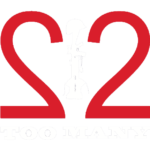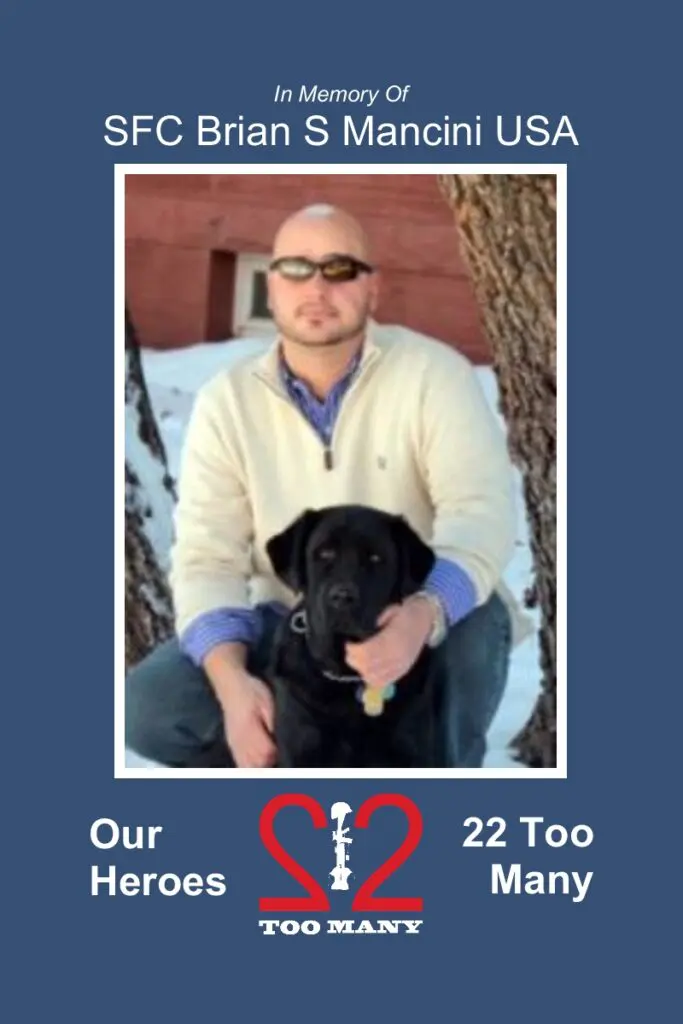SFC Brian Scott Mancini
January 18, 1979 – March 6, 2017
Brian was a medically retired Sergeant First Class, Combat Wounded Veteran who served as a Combat Medic with two tours in Baghdad, Iraq. He served over 12 years of Military Service in the United States Army. He was the recipient of two Purple Hearts, the Combat Action Badge, Combat Medical Badge, Air Assault Badge and Flight Medic Badge. He was medically retried in April of 2011 and returned to work in the community where he was born.
Brian was a proud Phoenix native and enjoyed volunteering and advocating for healthier Veteran’s care options and transitional needs, and was the founder of the Honor House. The Honor House’s mission is to provide a complete transitional package that utilizes resources from the community to meet therapeutic and transitional needs of our Veterans affected by combat and has helped wounded warriors adjust back into society and deal with pain and other ailments and a holistic manner.
He enjoyed spending time with his family and friends and also fly fishing. Brian is survived by his mother, Jackie Williams and stepfather, John Williams, father, Bill Mancini, brother Michael (Isabel) Mancini, sister, Nichole Mancini, nephew Alex, nieces, Patricia and Brianne, companion service dog, Romeo, extended family, friends and the numerous amounts people he has touched.
Article:
Hero who ‘died’ in Iraq, passes away here
EJ Montini – opinion columnist
His death certificate will read that Brian Scott Mancini, 38, passed away in Arizona.
That would be accurate, but it is not true.
The record will state that Mancini died by his own hand.
This, too, would be factual, but it is not correct.
The truth is, Sgt. 1st Class Brian Mancini was killed by a roadside bomb in Iraq … in 2007.
Back then he was a combat medic with the army serving his second tour in the war zone. He’d saved a number of lives. He’d seen a lot, been through a lot.
When his unit was ambushed Mancini was among the most seriously wounded.
Years later he told a reporter, “I knew my face had been hit really bad. I was peeling my glasses away from my face. I was choking on my blood and teeth. I reached in with my fingers and did a finger sweep, and took my teeth out. I remember I opened my airway as much as I could.”
He lost an eye. There were severe facial injuries. Severe skull and brain injuries. The surgeries and rehabilitation would go on for years.
Mancini contemplated suicide, but he fought through it.
His marriage fell apart. He struggled to readjust. But after his medical discharge in 2011 he found a calling in helping other vets, just as he’d helped wounded soldiers in the field.
He founded an organization called Honor House, which assists veterans like him.
Mancini learned firsthand that wounds mended are not necessarily healed, and that unseen injuries are just as deadly.
“There was a really dark period of my life when I literally just lay on the floor in my house crying I just was really frustrated with the lack of care. I felt betrayed… All they wanted to do was throw a lot of drugs at me, and those were having an adverse effect. They had me on 12 medications at one point. … I finally said, ‘You know what? I’m done.’”
He persevered. He got a therapy dog named Romeo. He took up fly fishing. He worked with fellow vets.
But his injuries, physical and otherwise, were severe. And recently they caught up with him. Mancini’s war injuries and other complications worsened. “It was just too much for him,” Jackie said. “Too much pain. Too much.”
News of Mancini’s death drew phone calls, letters and emails from all over the country.
“We have a letter from a woman he served with and a photo of her baby,” Mancini’s aunt Donna Winston said. “She says in it that without Brian she wouldn’t be here.”
Many of those who served with Mancini (called “Doc” in the army) have contacted the family or left messages.
One reads: “Doc – your entire Battalion misses you; thanks for taking care of so many Black Lions on the battlefield – you are a hero to so many. You lived the Warrior Ethos and Never Left A Fallen Comrade – Black Lions.”
“Too many of these young veterans are dying,” Mancini’s mom said. “We’ve got to help them more. We’ve got to do more for them.”
We forget about them. They can be hard to deal with. So we move on. We forget what they’ve sacrificed for us. We hardly notice when another one, like Brian, is lost.
We mistakenly call it a civilian death when it is a combat death.
Sgt. 1st Class Brian Mancini is buried at the National Memorial Cemetery of Arizona on Cave Creek Road. He served over a decade in the military. He received two Purple Hearts, the Combat Action Badge, Combat Medical Badge, Air Assault Badge and Flight Medic Badge.
Brian’s father, William Mancini, left a brief note on an online memorial guest book for his son. He wrote:
“When I was a young man I went to hear a speaker. He said ‘I want to be everything my father wasn’t and I want my kids to be everything I can’t.’ My son Brian became that man. My heart is broken. I’ve never been so sad. My hero, my son, my friend is gone.”

